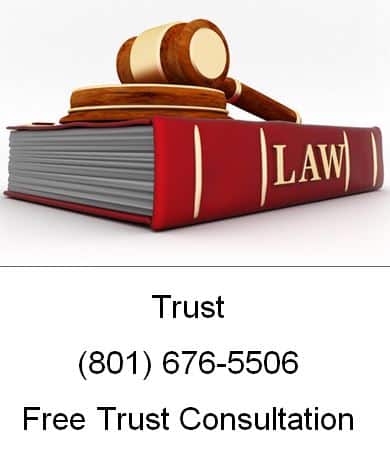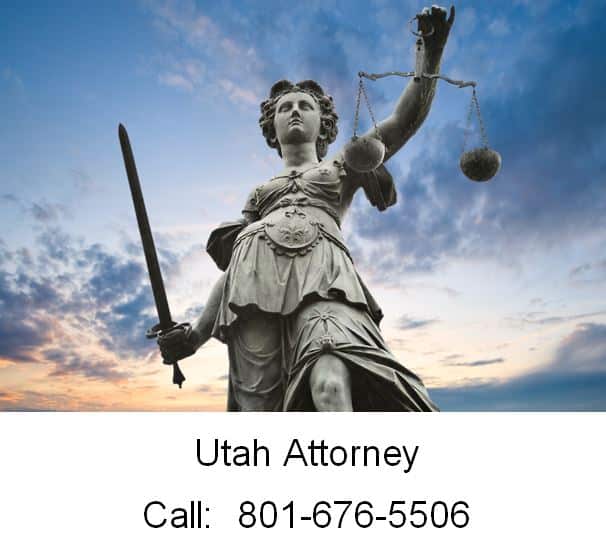A trust is the legal relationship between one person, the trustee, having an equitable ownership or management of certain property and another person, the beneficiary, owning the legal title to that property. The beneficiary is entitled to the performance of certain duties and the exercise of certain powers by the trustee, which performance may be enforced by a court of equity. Most trusts are founded by the persons (called trustors, settlors and/or donors) who execute a written declaration of trust which establishes the trust and spells out the terms and conditions upon which it will be conducted. The declaration also names the original trustee or trustees, successor trustees or means to choose future trustees. The assets of the trust are usually given to the trust by the creators, although assets may be added by others. During the life of the trust, profits and, sometimes, a portion of the principal, called the “corpus”, may be distributed to the beneficiaries, and the remainder to is usually distributed upon the occurrence of an event, such as the death of the creator. A trust may be created as an alternative to a will in order to avoid probate and higher taxation. There are many types of trusts, including “revocable trusts”, created to handle the trustors’ assets (with the trustor acting as initial trustee), also called a “living trust” or “inter vivo trust”, which only becomes irrevocable on the death of the first trustor; “irrevocable trust,” which cannot be changed at any time; “charitable remainder unitrust,” which provides for eventual guaranteed distribution of the corpus (assets) to charity, providing a substantial tax benefit. There are also “constructive” and “resulting” trusts declared by a court for equitable reasons over property held by someone for its owner. A “testamentary trust” can be created by a will to manage assets given to beneficiaries.
Types of Trusts
A trust is a legal document that can be created during a person’s lifetime and survive the person’s death. A trust can also be created by a will and formed after death. Once assets are put into the trust they belong to the trust itself (such as a bank account), not the trustee (person). They remain subject to the rules and instructions of the trust contract. In essence, a trust is a right to money or property, which is held in a fiduciary relationship by one person or bank for the benefit of another. The trustee is the one who holds title to the trust property, and the beneficiary is the person who receives the benefits of the trust.
Revocable Trusts
Revocable trusts are created during the lifetime of the trust-maker and can be altered, changed, modified or revoked entirely. Often called a living trust, these are trusts in which the trust-maker:
• Transfers the title of a property to a trust
• Serves as the initial trustee
• Has the ability to remove the property from the trust during his or her lifetime
Revocable trusts are extremely helpful in avoiding probate. If ownership of assets is transferred to a revocable trust during the lifetime of the trust-maker so that it is owned by the trust at the time of the trust-maker’s death, the assets will not be subject to probate. Although useful to avoid probate, a revocable trust is not an asset protection technique as assets transferred to the trust during the trust-maker’s lifetime will remain available to the trust-maker’s creditors. It does make it more somewhat more difficult for creditors to access these assets since the creditor must petition a court for an order to enable the creditor to get to the assets held in the trust. Typically, a revocable trust evolves into an irrevocable trust upon the death of the trust-maker.
Irrevocable Trust
An irrevocable trust is one that cannot be altered, changed, modified or revoked after its creation. Once a property is transferred to an irrevocable trust, no one, including the trust maker, can take the property out of the trust. It is possible to purchase survivorship life insurance, the benefits of which can be held by an irrevocable trust. This type of survivorship life insurance can be used for estate tax planning purposes in large estates; however, survivorship life insurance held in an irrevocable trust can have serious negative consequences.
Asset Protection Trust
An asset protection trust is a type of trust that is designed to protect a person’s assets from claims of future creditors. These types of trusts are often set up in countries outside of the United States, although the assets do not always need to be transferred to the foreign jurisdiction. The purpose of an asset protection trust is to insulate assets from creditor attack. These trusts are normally structured so that they are irrevocable for a term of years and so that the trust-maker is not a current beneficiary. An asset protection trust is normally structured so that the undistributed assets of the trust are returned to the trust-maker upon the termination of the trust provided there is no current risk of creditor attack, thus permitting the trust-maker to regain complete control over the formerly protected assets.
Charitable Trust
Charitable trusts are trusts which benefit a particular charity or the public in general. Typically charitable trusts are established as part of an estate plan to lower or avoid the imposition of estate and gift tax. A charitable remainder trust (CRT) funded during the grantor’s lifetime can be a financial planning tool, providing the trust-maker with valuable lifetime benefits. In addition to the financial benefits, there is the intangible benefit of rewarding the trust-maker’s altruism as charities usually immediately honor the donors who have named the charity as the beneficiary of a CRT.
Constructive Trust
A constructive trust is an implied trust. An implied trust is established by a court and is determined by certain facts and circumstances. The court may decide that, even though there was never a formal declaration of a trust, there was an intention on the part of the property owner that the property is used for a particular purpose or go to a particular person. While a person may take legal title to a property, equitable considerations sometimes require that the equitable title of such property really belongs to someone else.
Special Needs Trust
A special needs trust is one that is set up for a person who receives government benefits so as not to disqualify the beneficiary from such government benefits. This is completely legal and permitted under the Social Security rules provided that the disabled beneficiary cannot control the amount or the frequency of trust distributions and cannot revoke the trust. Ordinarily, when a person is receiving government benefits, an inheritance or receipt of a gift could reduce or eliminate the person’s eligibility for such benefits. By establishing a trust, which provides for luxuries or other benefits which otherwise could not be obtained by the beneficiary, the beneficiary can obtain the benefits from the trust without defeating his or her eligibility for government benefits. Usually, a special needs trust has a provision that terminates the trust in the event that it could be used to make the beneficiary ineligible for government benefits. Special needs have a specific legal definition and are defined as the requisites for maintaining the comfort and happiness of a disabled person when such requisites are not being provided by any public or private agency. Special needs can include medical and dental expenses, equipment, education, treatment, rehabilitation, eyeglasses, transportation (including vehicle purchase), maintenance, insurance (including payment of premiums of insurance on the life of the beneficiary), essential dietary needs, spending money, electronic and computer equipment, vacations, athletic contests, movies, trips, money with which to purchase gifts, payments for a companion, and other items to enhance self-esteem. The list is quite extensive. Parents of a disabled child can establish a special needs trust as part of their general estate plan and not worry that their child will be prevented from receiving benefits when they are not there to care for the child. Disabled persons who expect an inheritance or other large sum of money may establish a special needs trust themselves, provided that another person or entity is named as trustee.
Spendthrift Trust
A trust that is established for a beneficiary that does not allow the beneficiary to sell or pledge away interests in the trust is known as a spendthrift trust. It is protected from the beneficiaries’ creditors, until such time as the trust property is distributed out of the trust and given to the beneficiaries.
Tax By-Pass Trust
A tax by-pass trust is a type of trust that is created to allow one spouse to leave money to the other while limiting the amount of federal estate tax that would be payable on the death of the second spouse. While assets can pass to a spouse tax-free, when the surviving spouse dies, the remaining assets over and above the exempt limit would be taxable to the children of the couple, potentially at a rate of 55 percent. A tax by-pass trust avoids this situation and saves the children perhaps hundreds of thousands of dollars in federal taxes, depending upon the value of the estate.
Totten Trust
A Totten trust is one that is created during the lifetime of the grantor by depositing money into an account at a financial institution in his or her name as the trustee for another. This is a type of revocable trust in which the gift is not completed until the grantor’s death or an unequivocal act reflecting the gift during the grantor’s lifetime. An individual or an entity can be named as the beneficiary. Upon death, Totten trust assets avoid probate. A Totten trust is used primarily with accounts and securities in financial institutions such as savings accounts, bank accounts, and certificates of deposit. A Totten trust cannot be used with real property. It provides a safer method to pass assets on to family than using joint ownership.
To create a Totten trust, the title on the account should include identifying language, such as “In Trust For,” “Payable on Death To,” “As Trustee For,” or the identifying initials for each, “IFF,” “POD,” “ATF.” If this language is not included, the beneficiary may not be identifiable. A Totten trust has been called a “poor man’s” trust because a written trust document is typically not involved and it often costs the trust maker nothing to establish.
Advantages and Disadvantages of Living Trusts
Regardless of whatever else you may have heard there are only two ways to avoid probate: don’t die and don’t own anything. The living trust attempts to accomplish the second way of avoiding probate, no one having yet discovered how to accomplish the first. As an estate planning tool, a living trust is neither inherently good nor inherently bad. It has certain advantages and certain disadvantages. Whether its use is appropriate depends upon the particulars and is a matter for individual determination. But first, a little background. Probate is simply the procedure for transferring a decedent’s assets, either by that person’s will or by state statute if there is no will. In the overwhelming majority of cases, the system functions smoothly and without undue delay or expense. It is the rare, but sometimes colorful case in which the estate is tied up for years and burdened by enormous legal fees and administrative expenses – whether because of a will contest or other disputes among the heirs or because of disputed claims against the estate – that provides grist for the mill of the “avoid probate” industry. You might not know it from the sales pitches, but a “living trust’ is nothing new as an estate planning mechanism. It has been around for years under the more traditional names “revocable trust” and “inter vivo trust,” literally, a trust “between the living.” If it tells you nothing else, the Latin name tells you that the concept is very traditional. A living or revocable trust is one created by a person while living that may be revoked or modified by that person without the consent of any other person. The creator of the trust, called the “settler” or “grantor,” can be his or her own trustee and can designate a successor trustee or trustees in the event of incapacity or death. The settlor is typically the beneficiary of the trust during his or her life, and designates in the trust document who will be the beneficiaries upon his or her death.
The use of a revocable trust “to avoid probate” requires that the trust be funded with all or substantially all of the settlor’s assets during the settlor’s life. It is in this way that the revocable trust enables the settler to follow the aforementioned advice, “don’t own anything.” The assets have passed from individual ownership to ownership by the trust. Thus, when the settlor dies there is nothing in the estate (assuming no further acquisitions) and nothing to “probate,” even though the settler, as beneficiary, has enjoyed the use of the trust assets during his or her life. There can be additional advantages of such trusts, beyond probate avoidance. For example, if the settler is successful in avoiding probate, the size and distribution of the estate can be kept confidential, unlike probate proceedings which are matters of public record. Also, the assets of a living trust can typically be distributed to beneficiaries sooner than is possible in the probate of an estate. Living trusts also can be an excellent way of keeping records and managing property. Another argument for living trusts is that confidentiality of trust provisions and avoidance of court procedures tend to reduce the likelihood of the equivalent of a will contest.
A major disadvantage of a living trust is the cost associated with its preparation and funding. The paperwork is more complex for a living trust than for a will and the attorney’s fee is typically larger. Property that passes by title, for example, real estate and vehicles, has to be transferred formally from individual ownership to trust ownership. More paperwork and more expense. Beneficiary designations to property such as insurance policies and bank accounts may also need to be changed. For an estate with fairly extensive property and complex dispositions, the cost of preparing and funding a living trust can be two or three times the cost of a will with equivalent dispositions. People who choose a living trust over a will are essentially doing much of their own probate before their death, similar to the way that some people plan their own funerals. As a result, they are paying costs and performing work now that would otherwise be deferred until after death and then paid by their estate and performed by their Personal Representative. There is nothing wrong with this of course, as long as a person realizes that is what he is doing. Additionally, the formalities of setting up and funding a living trust must be observed and records kept to reflect that observance throughout the settlor’s life if the transfer of the assets is to occur smoothly and without probate when the settlor dies.
Again, more paperwork and transaction expenses to keep the trust current. Unfortunately, many people lack the self-discipline necessary to keep their affairs in the order required by a living trust after they have established one. The costs to set up, maintain, and administer a living trust are generally at least the same as the costs of a will plus probate. With a living trust those costs are loaded toward the front end, with a will toward the back end. On occasion, there is a distinct advantage to opening a probate case even where the decedent had a trust and all the decedent’s property had been placed in the trust. The probate process allows for publication of a “Notice To Creditors,” which in effect imposes a very short statute of limitations on claims against the estate. Trust administration procedures do not provide for this, so any claims against the trust are subject only to their ordinary limitations periods.
Free Initial Consultation with Lawyer
It’s not a matter of if, it’s a matter of when. Legal problems come to everyone. Whether it’s your son who gets in a car wreck, your uncle who loses his job and needs to file for bankruptcy, your sister’s brother who’s getting divorced, or a grandparent that passes away without a will -all of us have legal issues and questions that arise. So when you have a law question, call Ascent Law for your free consultation (801) 676-5506. We want to help you!
8833 S. Redwood Road, Suite C
West Jordan, Utah
84088 United States
Telephone: (801) 676-5506
Recent Posts
Creditor Claims Against Retirement Assets
Divorce Lawyer and Family Law Attorneys
Ascent Law St. George Utah Office
Ascent Law Ogden Utah Office
source https://www.ascentlawfirm.com/trust-dos-and-donts/






